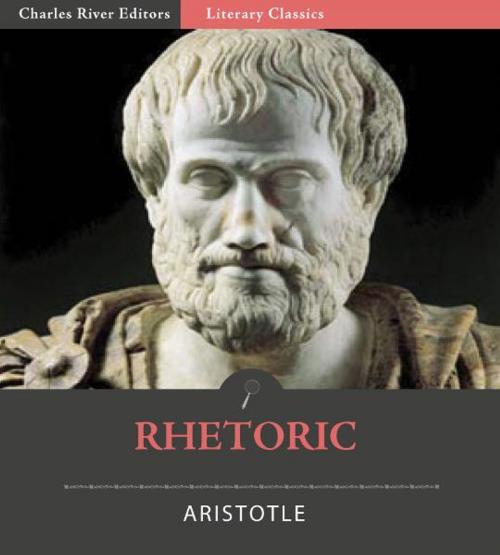Rhetoric (Illustrated Edition)
Nonfiction, Religion & Spirituality, Philosophy, Logic, Ancient, History, Ancient History, Greece| Author: | Aristotle | ISBN: | 9781619821125 |
| Publisher: | Charles River Editors | Publication: | January 16, 2012 |
| Imprint: | Language: | English |
| Author: | Aristotle |
| ISBN: | 9781619821125 |
| Publisher: | Charles River Editors |
| Publication: | January 16, 2012 |
| Imprint: | |
| Language: | English |
Along with Plato and Socrates, Aristotle (384-322 B.C.) is one of the triumvirate of philosophers responsible for the establishment of Western philosophy as it exists today. Socrates, Plato and Aristotle were among the first to refine philosophical thought, and Socrates is credited with devising the Socratic Method as a way to argue and debate points rationally. The Ancient Greek philosophers further stressed the importance of virtue and stoicism, advocating the improvement of ones self through constant learning and knowledge. These teachings and practices formed the foundation for philosophy and psychology as fields of study. Still, his most famous work is Rhetoric, his preeminent treatise on the art of persuasion. Rhetoric seems to have been a collection of notes written by Aristotle's students about his lectures, but nevertheless it has served as the foundation for the study of rhetoric ever since. Aristotle is widely credited with being the forbearer of the study of the art of rhetoric. This edition of Rhetoric is illustrated with pictures of the famous philosopher.
Along with Plato and Socrates, Aristotle (384-322 B.C.) is one of the triumvirate of philosophers responsible for the establishment of Western philosophy as it exists today. Socrates, Plato and Aristotle were among the first to refine philosophical thought, and Socrates is credited with devising the Socratic Method as a way to argue and debate points rationally. The Ancient Greek philosophers further stressed the importance of virtue and stoicism, advocating the improvement of ones self through constant learning and knowledge. These teachings and practices formed the foundation for philosophy and psychology as fields of study. Still, his most famous work is Rhetoric, his preeminent treatise on the art of persuasion. Rhetoric seems to have been a collection of notes written by Aristotle's students about his lectures, but nevertheless it has served as the foundation for the study of rhetoric ever since. Aristotle is widely credited with being the forbearer of the study of the art of rhetoric. This edition of Rhetoric is illustrated with pictures of the famous philosopher.















